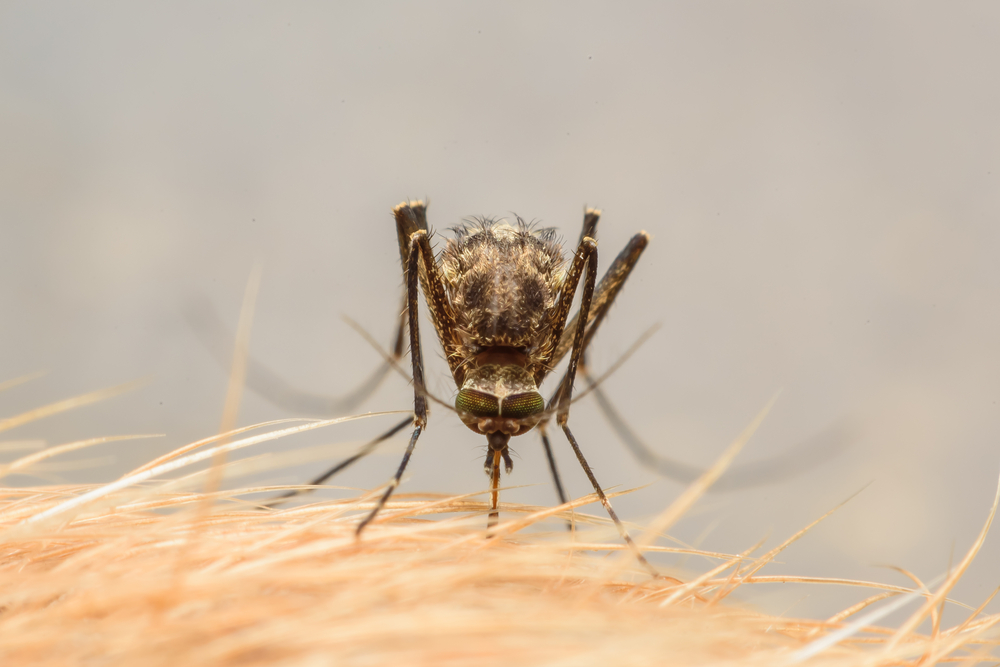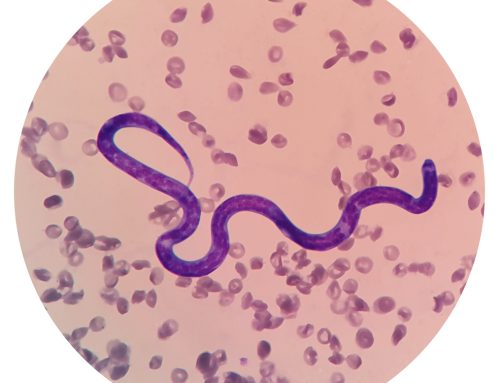Since we focused on fleas in March and ticks in April, we thought May would be a great time to write about mosquitoes. (Hang in there: Next month we’ll try to avoid blood-sucking bugs.)
No one wants to get bitten by a mosquito, but these flying insects are more than just a nuisance.
Did you know?
- Only female mosquitoes bite.
- About 175 mosquito species can be found in the U.S. (Texas has the most with 85.)
- Mosquitoes are considered the deadliest “animal” on earth because they transmit malaria, which is responsible for more than 1 million human deaths each year.
- A mosquito can drink up to 3 times its weight in blood.
- Female mosquitoes can lay up to 300 eggs at a time.
About heartworm disease
Heartworm disease is a parasitic infection caused by a type of roundworm that is often called a heartworm because it lives in the heart, lungs, and surrounding areas of infected animals, including dogs and cats. The potentially deadly disease has been diagnosed in all 50 states and has become more prevalent in recent years.
How heartworm is transmitted
Dogs are natural hosts for heartworms. When a mosquito carrying heartworm larvae bites a dog, the larvae enter the dog’s bloodstream and travel through his body until they reach the blood vessels surrounding the heart and lungs, where they stay until they mature into adult heartworms, which takes about 6 months. Up to 12 inches long and resembling spaghetti noodles, the adult heartworms then release immature heartworms into the dog’s bloodstream, which are passed on when the dog is bitten by another mosquito.
Cats are not as susceptible to heartworm disease as dogs, but they can still be infected and eventually suffer the effects of the disease when bitten by a mosquito carrying heartworm larvae. A heartworm-positive dog may have around 30 mature worms in his body, but a heartworm-positive cat will usually only have up to three mature worms in her body because cats are not natural hosts for heartworms, so most of the worms will not survive to the adult stage in cats.
Diagnosing heartworm
There is a heartworm blood test available for dogs, which we recommend annually because there are rarely early signs of the disease. If a dog shows any signs, they might include:
- Coughing
- Exercise intolerance
- Poor body condition
Signs of heartworm in cats can vary, so the disease is difficult to diagnose. We may use various tools to determine if a cat is heartworm positive, including blood tests, urinalysis, X-ray, and/or ultrasound. Some cats with heartworm disease might experience:
- Coughing, wheezing, or difficulty breathing
- Difficulty walking
- Vomiting or diarrhea
- Decreased appetite
- Weight loss
- Blindness
- Seizures
- Fainting
- Sudden collapse or death
Treating heartworm
Heartworm can be treated in dogs, but there is no treatment available for cats.
Treating heartworm in dogs can be difficult and expensive. And, the more advanced the infection, the harder it is to treat and the more likely the dog will have long-lasting health implications. Depending on how advanced your dog’s infection is, we may recommend:
- Antibiotics, heartworm preventives, and steroids before treating the adult worms
- A series of drug injections lasting more than 60 days that will kill the adult worms
- Steroid treatments following the injections
Because there is no feline-specific heartworm treatment, and the canine medication is toxic to cats, we will work to treat a heartworm-positive cat’s symptoms, stabilize her, and develop a plan to manage her condition for the rest of her life.
Preventing heartworm
Although heartworm disease can be deadly and difficult to treat, it is preventable. Both dogs and cats should be given a heartworm preventive regularly for year-round protection.
Are mosquitoes annoying? Yes. But they are capable of much worse. Is your pet on a regular heartworm preventive medication? When was the last time your dog was tested for heartworm disease? 937-866-5949 to schedule your pet’s next preventive care visit.









Leave A Comment